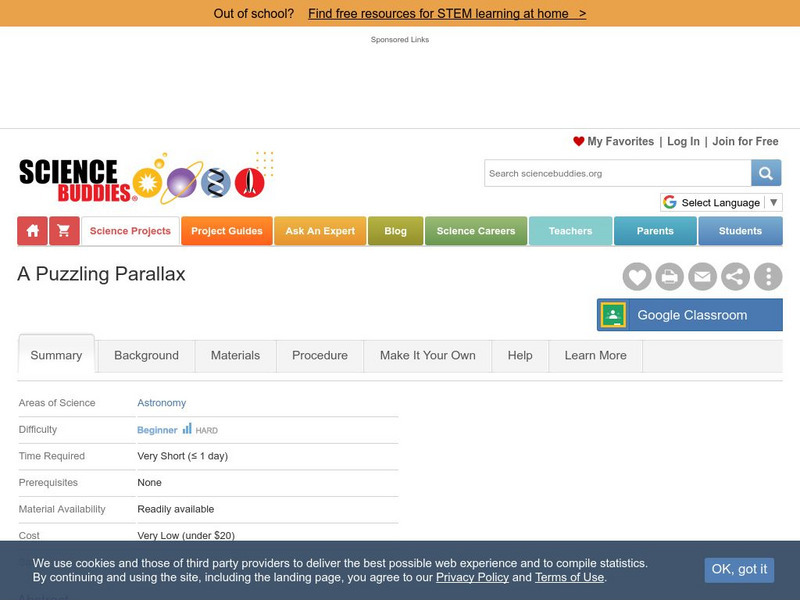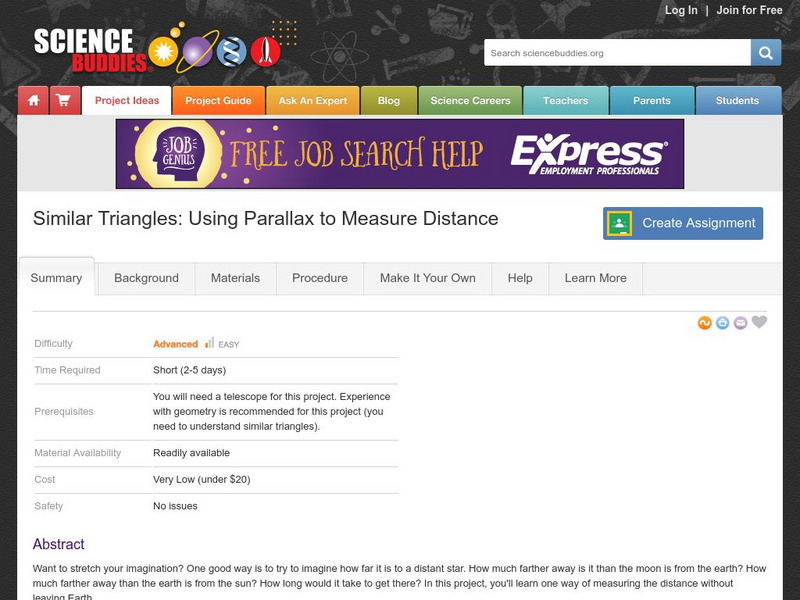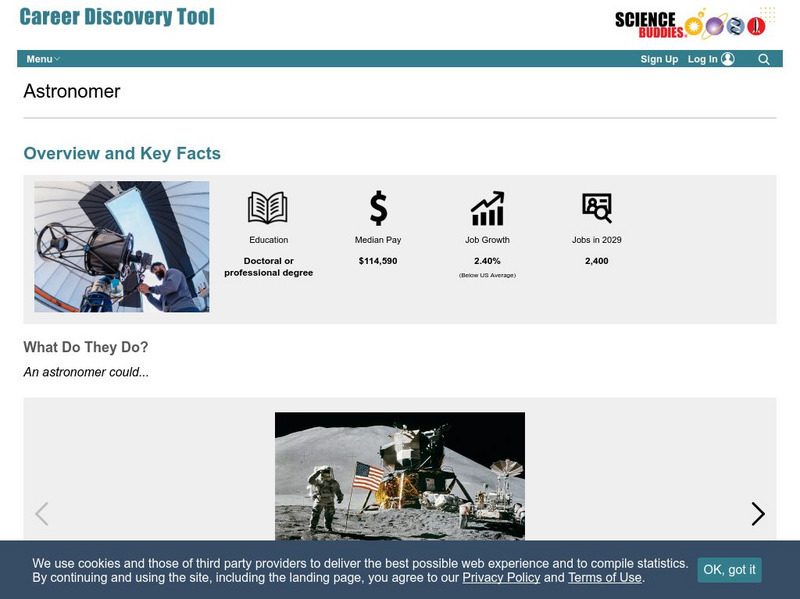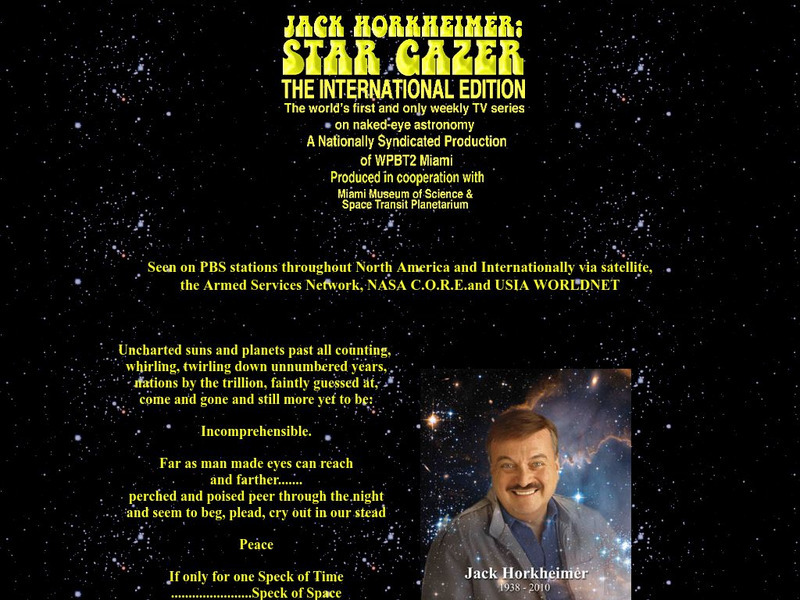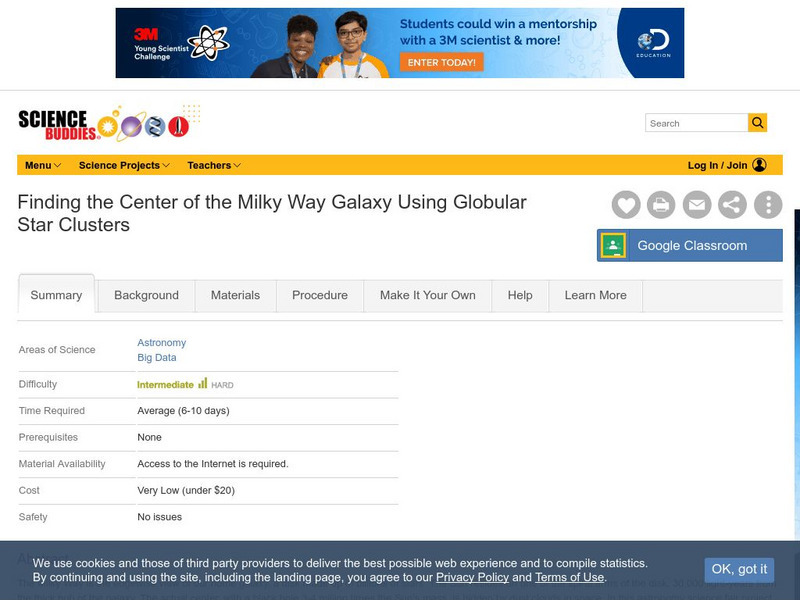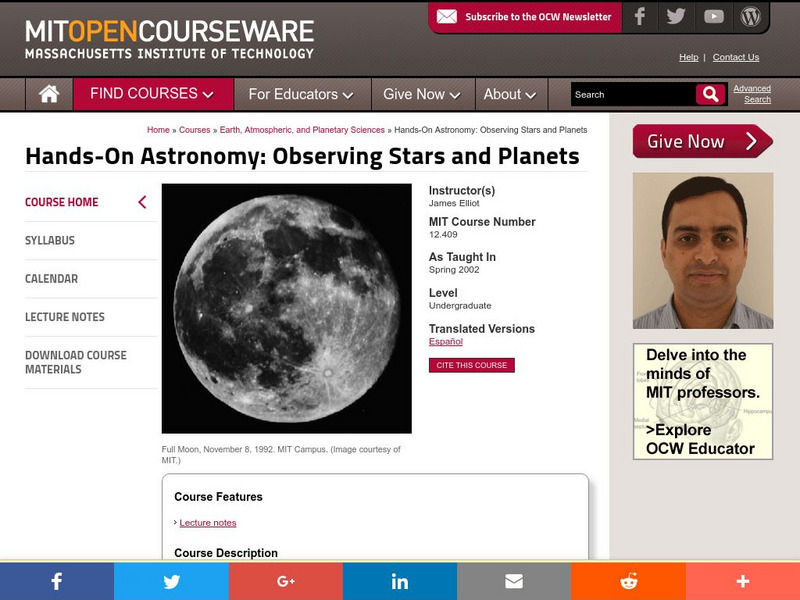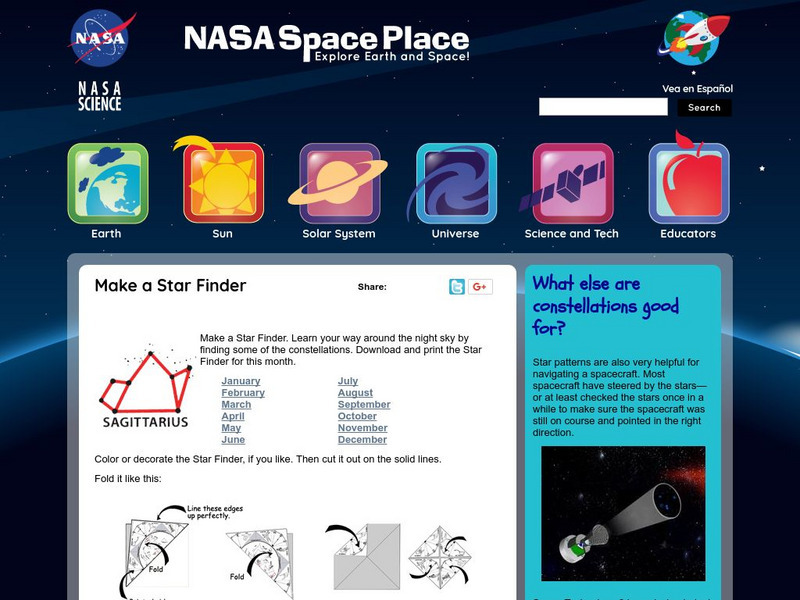Science Buddies
Science Buddies: Which Stars Can You Use for Navigation
A great science project from Science Buddies that examines how ancient peoples navigated without the benefit of a GPS. Find out which stars are important in navigation in the northern and southern hemispheres. The Science Buddies project...
Library of Congress
World Digital Library: Astronomy: Reaching for the Stars
In this article the contributions of the Islamic world to our knowledge of astronomy is discussed.
Ducksters
Ducksters: Space Science: Astronomy for Kids
Kids learn about astronomy, the study of outer space including the stars, planets, comets, black holes, and the Solar System. History and astronomers in this astronomy for teachers and kids section.
Science Buddies
Science Buddies: Where Did All the Stars Go?
If you live in a big city or urban area it is hard to see many stars at night. In most urban areas only the most brilliant stars, planets and the moon can be seen. This is because of something called light pollution which is the...
Science Buddies
Science Buddies: The Moon and the Stars
When you are in the city, only a few of the brightest stars are visible. But when you are in the country, you can see many more stars than you can count. Sometimes you can even see the bright belt of our galaxy, the Milky Way. In this...
Science Buddies
Science Buddies: A Puzzling Parallax
Did you know that ancient astronomers could measure the distance to other stars? They could also distinguish between stars and planets. How could they do that without modern technology of telescopes? See if you can discover the link...
Science Buddies
Science Buddies: Changing Constellations
Do you like to look up into the night sky? There are so many stars, it can be mind boggling. Some ancient people marked time by the changes in star patterns. We still use changes in constellation patterns to mark astronomical time. This...
Science Buddies
Science Buddies: Using a Digital Camera to Measure Skyglow
This is a great project for someone that is interested in both stargazing and photography. Bright city lights and even the light of the full moon obscure the dimmest stars, which can make identifying constellations more difficult. This...
National Science Foundation
National Science Foundation: Astronomy and Space: Research Overview
Explore some of our most fundamental questions about space exploration with this research overview collected by scientists at the National Science Foundation. Additionally, experience deep space first-hand with telescope interactives.
Georgia Department of Education
Ga Virtual Learning: A Brief History of Astronomy
In this interactive module students will explore what different ancient cultures believe was an explanation of the stars and planets. They will look at how the work of Nicolas Copernicus revolutionize the world of astronomy and learn how...
Science Buddies
Science Buddies: The Milky Way and Beyond: Globular Clusters
Globular clusters, compact groups of about a million stars that move around together in galaxies, are among the oldest objects found in the universe. Since they are found most galaxies and since they've been around for so long, globular...
Science Buddies
Science Buddies: Similar Triangles: Using Parallax to Measure Distance
Want to stretch your imagination? One good way is to try to imagine how far it is to a distant star. How much farther away is it than the moon is from the earth? In this project, you'll learn one way of measuring the distance without...
Science Buddies
Science Buddies: Career Profile: Astronomer
Reach for the stars by checking into the career as an astronomer. This Science Buddies site lays out the requirements needed to become an astronomer, as well as the education and job description. Included are interviews with people who...
Other
Jack Horkheimer: Star Gazer
This is a site on astronomy in general. If you are into astrophotography, you can find out what is happening in the heavens! Jack Horkheimer is also seen on PBS. You can access the 5 or 1 minute shows on this site.
Ducksters
Ducksters: Astronomy for Kids: Stars
Kid's learn about the science of stars like our Sun. Giant hot balls of gas and energy made mostly of hydrogen and helium.
Science Buddies
Science Buddies: Find Center of Milky Way Galaxy Using Globular Star Clusters
The Milky Way is the edgewise view of our home galaxy, a disk made up of billions of stars. The Sun resides on one of the spiral arms of the disk, 30,000 light-years from the thick hub of the galaxy. The actual center, with a black hole...
Massachusetts Institute of Technology
Mit: Open Course Ware: Hands on Astronomy: Observing Stars and Planets
A university-level course in basic observational procedures in astronomy. Covers how to use a telescope, and includes lecture notes.
NASA
Nasa: Imagine the Universe: The History of Gamma Ray Astronomy
This NASA article discusses the history of gamma-ray astronomy. Related resources.
Kidport
Kidport: Space Science
This complete resource will help students to improve their understand of space exploration. Includes images of the universe, galaxies, stars and planets.
E-learning for Kids
E Learning for Kids: Science: Madagascar: What Is the Solar System?
Patrick loves being a pirate, but he'd prefer to be an astronomer. Join him, and learn about everything high in the sky like the moon, stars, and asteroids.
Other
Canal Kids: Ciencias (Science for Portuguese Speakers)
Colorful, engagingly written information about astronomy and biology for Portuguese-speaking English language learners. Both subjects are broken down into a broad array of related subtopics. The biology section is particularly helpful...
British Library
British Library: International Dunhuang Project: Chinese Astronomy Resource
Using the early Dunhuang Star Atlas, an important historical and scientific document of the sky seen from China dating from before AD 700, learn about astronomical history from the perspective of China. Find resources and analysis that...
NASA
Nasa: Make a Star Finder
Learning game and activity that teaches about the constellations by making a star finder to help locate them.
Ducksters
Ducksters: Kids Science: Astronomy: The Sun
What is the Sun made of? How does the Sun make sunlight? Is the Sun a star?







